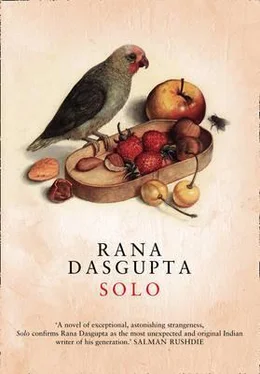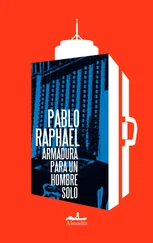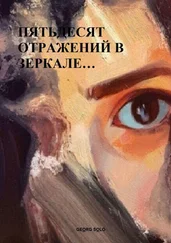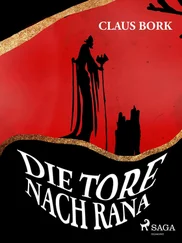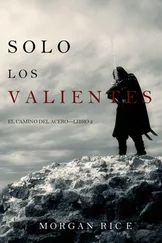‘You mustn’t think about the other people’s pain. It will never end. Look at the people you know, how much they have suffered, and multiply it by everyone in the world. You can never imagine the volume. It would destroy your own significance, and there’s no point in it.’
The matinee had ended at the theatre, and people filed out into the square. It was a beautiful day in early summer, and cherry blossom drifted in the breeze.
‘You should take better care of yourself,’ she continued. ‘I won’t be with you for ever.’
‘Don’t say such things.’
‘Isn’t it true? I am old, and soon I’ll die. It would make me so happy to see you married again.’
He did not answer her. She was tired, and they headed for a bench. They watched the dressed-up children, and the red flags hanging on the war memorial. Elizaveta said,
‘You travel so far to that factory, and you spend every day in that noise and heat. Your clothes stink when you come home. If you joined the party you could have an easier life. You would have comforts and promotions.’
She leaned her head against his shoulder, looking up at the sky and the tips of the poplars.
‘Isn’t there anything you’d like to do? What do you think about? You’re always thinking. I wish you would tell me about it. I don’t know what happens in your head.’
Soldiers were relaxing on a bench under the willow trees. There were wreaths around the war memorial, from a few days before, and people strolled in Sunday clothes, their cigarette smoke luminous in the sun.
A few days later, Ulrich looked up from his evening reading and said,
‘Did I ever tell you my theories about the baths at Carlsbad?’
‘No.’
Ulrich told his mother about Pierre and Marie Curie, the pioneers of radioactivity. He told her how the Austrian government had presented them with a tonne of uranium ore — pitchblende — that was dug up from the enormous silver mines of Joachimsthal in Bohemia. The precious gift arrived on a horse-drawn cart, still matted with Bohemian earth and pine needles, and the Curies set to work. They discovered that the ore was emitting very high levels of radiation, far higher than uranium, and they realised another substance must be present. After two years of work, they isolated from this tonne of pitchblende one tenth of a gram of a new element. Radium.
‘Pierre Curie’s mother had died of cancer a few years before,’ said Ulrich, ‘and he and Marie began to experiment with the effects of radium on tumours. They achieved positive results. They thought it would soon be possible to destroy cancer for ever. And that was the beginning of radiotherapy.’
Elizaveta settled back in her chair, happy to hear her son talking about something he loved.
Ulrich related how the rumours of radioactivity’s life-giving power began to circulate among the public at large. It was assumed that the new force of nature must be invigorating for the body, and popular magazines were suddenly filled with advertisements for radium compresses, radium bath salts, radium implants, radium chocolate and radioactive inhalations.
‘Can you imagine?’ Ulrich exclaimed.
He told her about the fashionable spas of Carlsbad, which were close to the Joachimsthal mines. Carlsbad had already been an elegant summer resort of the European elites for a century or more, but now the sudden popularity of radium gave an additional boost to its prestige. Carlsbad boasted of the tonic radioactivity of its waters. And in 1906, a new ‘radioactive spa’ was built even closer to the mines, in Jáchymov.
‘I’ve always been struck,’ said Ulrich, ‘by all the famous people who went to those spas and later died of cancer. There were so many musicians. Johannes Brahms, the composer, and Niccolò Paganini, the most famous violinist who ever lived.’
Later on, the harmful effects of exposure to radiation became well known. Marie Curie herself was covered with terrible welts from her laboratory work, and died a painful death as a result. But none of this stopped Leopold Godowsky, a pianist friend of Albert Einstein, from visiting the spas of Carlsbad in the hope that the special waters might reanimate his right arm, which had become useless after a stroke. Not long after that, he died of stomach cancer.
‘My goodness,’ said Elizaveta coolly. ‘What things you carry in your head.’
‘Soon after,’ said Ulrich, ‘Carlsbad and the mines were occupied by Nazi Germany. The Germans wanted the uranium for an atomic bomb, and they set up a labour camp in Joachimsthal, where non-Aryans were sent into the ground to pull out the pitchblende. Then the territory passed to the Soviet Union in the war, who did exactly the same thing. Enemies of the state were forced to dig uranium for the Soviet nuclear arsenal. Every day we have new stories about the Soviet Union’s glorious nuclear might. Well, this is how it happens. Can you imagine those people? Can you imagine the cancer?’
After a while, Elizaveta said,
‘I don’t know why you would tell me something like that.’
She began to cry, and Ulrich stiffened, as he always did.
‘You just have no sense of things,’ she said behind her hands.
He did not look at her. He said,
‘A long time ago, Boris and I had a debate about chemistry. I said it was the science of life, and he said it brought only death. Now I see that our views were simply two halves of the same thing.’
But Elizaveta did not reply.
18
ULRICH’S NEIGHBOUR IS IRRITATED, and her limp sounds worse than usual.
‘Water is still pouring through our ceiling,’ she says bitterly. The man who lives above her has not been seen for months, and no one has the key to his apartment.
‘I don’t know what’s going on up there. If he left a tap on or if his pipes have burst. It must be like a swimming pool, because our ceiling is completely sodden. We need an umbrella to go into the toilet.’
She has come to give him his pills. She smells musty.
‘That man, he’s better off than a politician. He’s made so much money in a few years that he doesn’t even bother to sell his old apartment. He’s just locked it and gone: no one knows where he is. My husband’s looking for a crowbar to break it open. Who knows what he’ll find inside?’
Ulrich sometimes thinks that his neighbour talks too much.
‘This building is slowly falling down,’ she continues. ‘I’m scared to walk in the stairwell! It’s dark as hell and so filthy you could catch a disease. When I open the front door at night there are cockroaches in the hallway, running from the light outside.’
She sighs as she speaks, to make the point.
‘I don’t know,’ she says. ‘At least in the old days we didn’t have all this. Now everything is shit. Excuse me, but it is. Did you hear about the rabies? The streets are full of dogs now, biting people, and we’ve just had another case. Who ever heard of rabies in Sofia? That’s capitalism, I suppose. You must have heard that Ilia Pavlov has been shot?’
Ulrich has heard the news reports, but he is not sure who Ilia Pavlov is.
‘You don’t know? Don’t you use that television? Every month I go to deliver the money. It’s no use if you don’t ever watch it.’
Ulrich thinks, Yes, I turn it on every evening , but he does not say it to her. He does not see why he should justify himself. He hopes she will live to a hundred so she can see how difficult it is to adapt to the new names.
She has gone to fetch today’s newspaper, which has a big article about Ilia Pavlov’s life. She reads to Ulrich.
Mr Pavlov, who died Bulgaria’s richest man, began his rise to power in the 1980s as head of the Bulgarian wrestling team.
Читать дальше
Конец ознакомительного отрывка
Купить книгу
